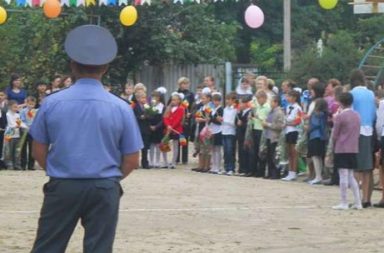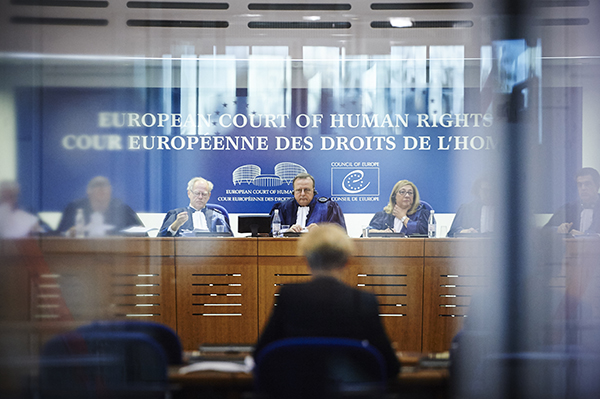September 2, 2019. The state anthem and tricolor of the Republic of Moldova, forbidden in two schools with Romanian language studies on the left bank of the Dniester
Schools studying in the Romanian language on the left bank of the Dniester have been confronted, at least twice a year, with the same problem. The official events at the end of the school year or the one from the beginning of the year were marked by the intervention of the Transnistrian militia (police), which forbids these schools to fly the tricolor flag and to sing the state anthem of the Republic of Moldova. The problem had been improved after signing in 2017 by Chisinau and Tiraspol the protocol decision regarding the proper functioning of the schools with teaching in Latin spelling from the left bank of the Dniester. One of the commitments was to reduce the tariffs for maintenance services and the rental rates for schools’ buildings, as well as to extend the rent term up to 10 years. However, practically every year one or two schools in the region were affected by this interference of the Transnistrian militia.

It has become a norm for the separatist regime to periodically display its force capacity and this year two other schools were not allowed to play the anthem and to fly the tricolor at the solemn opening of the school year. This is the Corjova Gymnasium and Roghi Gymnasium. The separatists are giving a shout to the Chisinau authorities not to forget who has the real power in the region, regardless of the agreements reached in the negotiations in the 5 + 2 format. In fact, schools teaching in Romanian language on the left bank of the Dniester have always been used as “exchange currency” for the alleged authorities in Tiraspol in the process of negotiations with Chisinau. It is at least shameful this game with the fate of children, persecuted and determined by such actions to give up practically their national identity.
The program director at Promo-LEX Alexandru Postică states that “similar problems arising in the other schools have been intensely publicized in recent years, which is why the separatist authorities have not dared to intervene. The expert does not rule out that the institutions were kept under observation, but problems did not arise. “The problems appeared in the Gymnasiums in Corjova and Roghi, both less visible in the public space,” says Postică. According to him, the Chisinau authorities were notified about the situation at the two Gymnasiums, in order to bring it into discussion at the next meeting of the “5 + 2” format.
Over the years, the Tiraspol regime has tried through various subversive methods and challenges to block the activity of schools studying in Romanian language in the region. The so-called separatist administration has resorted to different types of persecution: the prohibition of passing children through the control posts; the detention at the customs posts of products for schools; confiscation of school equipment; persecution of parents; double taxation for the payment of the maintenance services of the teachers because they work in these institutions; vandalizing school’s buildings; unmotivated increase in payments for rent of premises; stopping school buses; prohibition of flying the tricolor flag and to sing the state anthem.

In October, seven years have passed since the decision of the ECHR regarding the violation of the right to education of school students from Romanian-language schools in the Transnistrian region. Responsible for these irregularities is Russia, which until now refuses to execute the decision, which was obliged to pay damages of one million euros to the 170 students, parents and teachers, most of Ribnita, Tighina and Grigoriopol, who have complained to the Strasbourg Court that their right to education in Romanian language was restricted. In October 2012, the European Court of Human Rights found a violation of the right to education in the case of schools teaching in Romanian language in the Transnistrian region. Russia was then convicted of supporting the unconstitutional regime of Tiraspol and did not take any action to prevent the closure of schools in 2004, when some parents and teachers were arrested, the school buildings were seized and the property owned by them they were destroyed. Russia refuses to comply with this decision, and the country’s position was exposed in the summer of 2014 by the representative of Moscow to the ECHR, Gheorghi Matiuşkin. He considers that in this case the High Court had a discriminatory stance towards the Russian Federation.
Meanwhile, in October 2018, six years after the first conviction, Russia was condemned in a new decision regarding the Romanian language schools in the Transnistrian region. “Russia has violated the right of schools students from the Tighina boarding school to learn in their state language,” the European Court of Human Rights ruled and ordered Moscow to pay damages of 64,000 euros.
Currently, eight schools studying in the Romanian language are active in the Transnistrian region: Alexandru cel Bun High School in Bender, Stefan cel Mare High School in Grigoriopol, Lucian Blaga High School in Tiraspol, Eureka High School in Ribnita, Mihai Eminescu High School in Dubăsari, Gymnasiums in Corjova and Roghi, as well as the orphanage Gymnasium in Bender.


